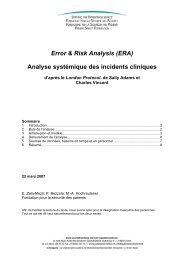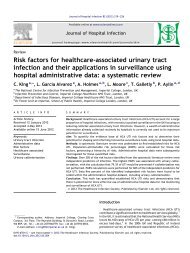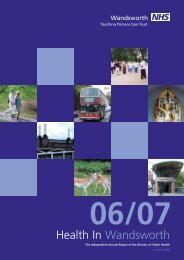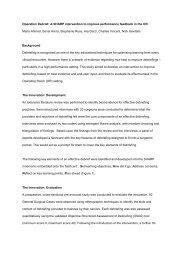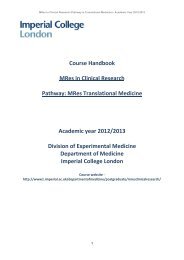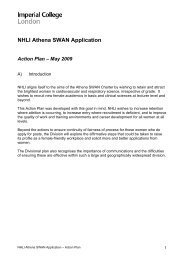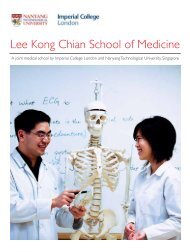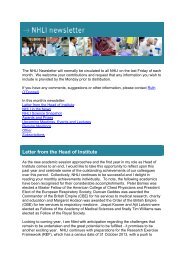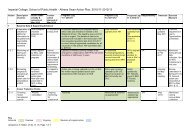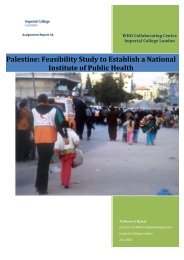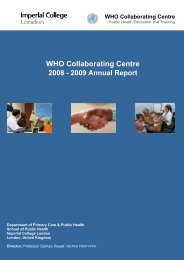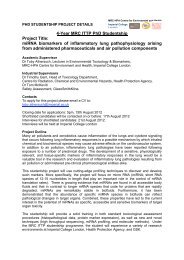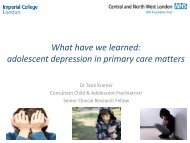QOF Plus Year 1 - Imperial College London
QOF Plus Year 1 - Imperial College London
QOF Plus Year 1 - Imperial College London
Create successful ePaper yourself
Turn your PDF publications into a flip-book with our unique Google optimized e-Paper software.
The Seven Point Plan for the Protection, Promotion and Support of Breastfeeding in CommunityHealth Care Settings recommends:1 A written breastfeeding policy that is routinely communicated to all health care staff.2 Training all staff involved in the care of mothers and babies in the skills necessary toimplement the policy.3 Informing all pregnant women about the benefits and management of breastfeeding.4 Supporting mothers to initiate and maintain breastfeeding.5 Encouraging exclusive and continued breastfeeding, with appropriately timedintroduction of complementary foods.6 Providing a welcoming atmosphere for breastfeeding families.7 Promoting co-operation between healthcare staff, breastfeeding support groups and thelocal communityThe NICE Clinical Postnatal Guidelines (Demott, 2006) recommends that “all healthcare providers(hospital and community) should implement an externally evaluated structured programme thatencourages breastfeeding using the Baby Friendly Initiative as a minimum standard” andconcludes that “it is highly likely that the initiative is cost-effective.” The document also highlightsthat Trusts that have achieved the accreditation have increased the breastfeeding initiation ratesby more than 10% average, over a four-year period, with evidence of sustainability. Dyson et al.(2006) found high quality evidence that both health professional support and peer support can beeffective in supporting both exclusive and any breastfeeding.Incorporating the proposed indicators within <strong>QOF</strong>+ would contribute to practices addressingpoints 3 and 4 of the Baby Friendly Initiative’s Seven Point Community Plan.There is evidence from a Cochrane systematic review (Dyson, 2007) that antenatal breastfeedingeducation has a significant effect on increasing initiation rates of breastfeeding compared withroutine care.Recently published NICE guidance on improving the nutrition of pregnant and breastfeedingmothers and children in low-income households recommends that:“during individual antenatal consultations GPs, obstetricians and midwives shouldencourage breastfeeding. They should pay particular attention to the needs of womenwho are least likely to breastfeed (for example, young women, those who have loweducational achievement and those from disadvantaged groups).” (NICE, 2008)48



